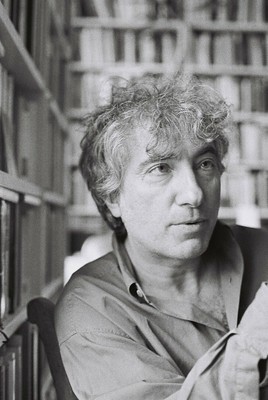 Adam Phillips, born on 19 September 1954 in Cardiff, Wales, has emerged as one of the most influential and insightful psychoanalysts and essayists in Britain. His journey into the realm of psychoanalysis began at Oxford, where he studied English at St John's College, inspired by literary figures and the autobiography of Carl Jung. This blend of literary and psychoanalytic passion has defined Phillips' career, leading him to describe psychoanalysis as akin to "practical poetry," a realm more aligned with the nuances of literature than the empirical rigidity of medicine.
Adam Phillips, born on 19 September 1954 in Cardiff, Wales, has emerged as one of the most influential and insightful psychoanalysts and essayists in Britain. His journey into the realm of psychoanalysis began at Oxford, where he studied English at St John's College, inspired by literary figures and the autobiography of Carl Jung. This blend of literary and psychoanalytic passion has defined Phillips' career, leading him to describe psychoanalysis as akin to "practical poetry," a realm more aligned with the nuances of literature than the empirical rigidity of medicine.
Phillips' career is marked by a significant tenure as principal child psychotherapist at Charing Cross Hospital in London from 1990 to 1997, after which he transitioned to private practice in Notting Hill. His disillusionment with the bureaucratic confines of the National Health Service did not dampen his enthusiasm for psychoanalysis but rather propelled him into a prolific writing career, contributing regularly to the London Review of Books and being described as "the Martin Amis of British psychoanalysis" by The Times for his unsettling yet brilliantly amusing work.
Phillips is a master of critiquing and expanding upon psychoanalytic theory, often challenging its dogmatic boundaries with a refreshing openness that allows for a dynamic exploration of ideas. This approach is perhaps best encapsulated in his interaction with Lacanian theory, where Phillips exhibits a selective engagement, absorbing what he finds of interest and setting aside the rest until it intersects intriguingly with his evolving intellectual journey. His work defies the traditional psychoanalytic discourse, offering a liberating perspective that values the exploration of ideas over adherence to a strict psychoanalytic orthodoxy.
His contributions to psychoanalytic literature are vast, with notable works such as "Winnicott" (1988), "On Kissing, Tickling, and Being Bored: Psychoanalytic Essays on the Unexamined Life" (1993), and "Missing Out: In Praise of the Unlived Life" (2012), among others. Phillips' writings delve into the complexities of human nature, relationships, and the quest for understanding the self in a world rife with prescribed identities and paths.
Adam Phillips' engagement with psychoanalysis and literature is a testament to his belief in the power of words and ideas to navigate the intricacies of the human psyche. His work stands as a beacon for those seeking to understand not just the malfunctions of modernist psychology but the very essence of what it means to live a life imbued with curiosity, kindness, and a willingness to explore the uncharted territories of the mind and soul.
In Phillips' view, the essence of psychoanalysis lies in its capacity to foster an environment where individuals can risk discovering their desires and appetites without the compulsion to adhere strictly to a narrative of self-knowledge. This perspective encourages a form of engagement with the self that is open to transformation and the unpredictability of human experience, much like the process of engaging with a compelling piece of literature or art. His work remains a critical and creative exploration of the possibilities that psychoanalysis and literature offer for understanding and experiencing the depths of human life.
References and Links to his work
Podcasts by psychoanalyst and writer Adam Phillips:
1) London Review (LRB) View this content on LRB's website
Adam Phillips · Against Self-Criticism Self-criticism can be our most unpleasant – our most sadomasochistic – way of loving ourselves.
2) Adam Phillips is a guest at Book Club presenting his new book is On Giving Up. He tells how literature relates to psychoanalysis, why censorship makes life possible, and what Freud got wrong.